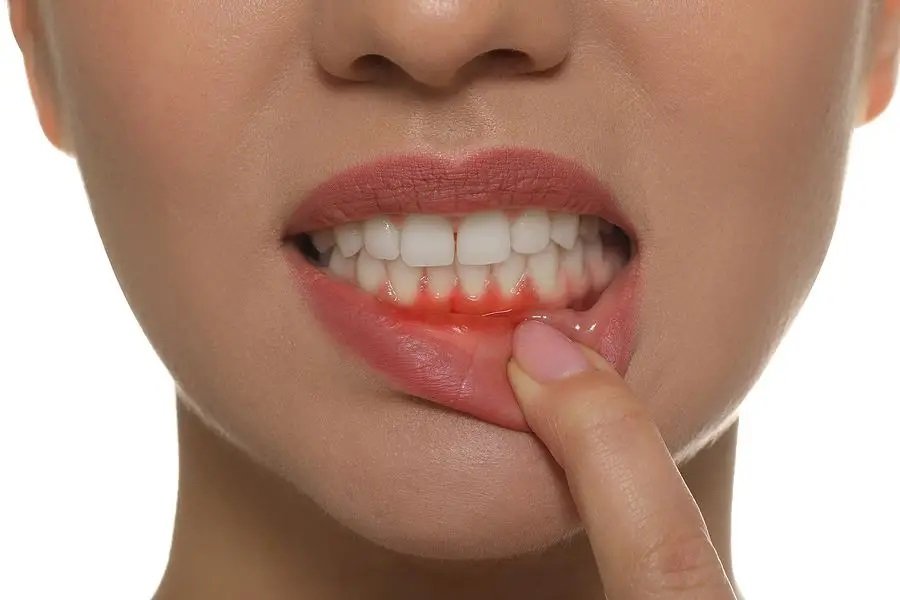Are you experiencing the discomfort of a loose tooth? You’re not alone. Many people have found themselves in this predicament, searching for a quick and effective solution. Well, look no further! In this article, we will unveil the secrets of how to tighten a loose tooth fast, allowing you to regain your confidence and enjoy life to the fullest.
Firstly, it’s crucial to understand the causes behind a loose tooth. Whether due to gum disease or an injury, identifying the root cause will help you address the issue more effectively. Next, maintaining good oral hygiene is paramount in preventing further damage and promoting tooth tightness. Regular brushing and flossing are simple yet essential practices that should never be neglected.
Avoiding hard and sticky foods can also play a significant role in preserving dental health. By steering clear of these culprits, you’ll give your teeth the chance to heal and tighten naturally. Additionally, using a saltwater rinse can provide soothing relief while reducing inflammation.
But wait, there’s more! Applying a cold compress and utilizing a dental splint are other techniques we’ll explore in detail. And if all else fails, seeking professional dental treatment is always recommended.
So join us on this journey towards tighter teeth as we delve into practical methods that will help you achieve lasting results. Say goodbye to that wiggling sensation – it’s time for your smile to shine with certainty once again!

Understanding the Causes of a Loose Tooth
So you’re wondering why your tooth is feeling a bit wiggly, huh? Well, there are several causes of a loose tooth that you should be aware of. One common cause is gum disease, which occurs when plaque builds up and irritates the gums. Without proper treatment, gum disease can lead to bone loss and ultimately result in loose teeth. Another possible cause is trauma or injury to the mouth. If you’ve recently experienced a blow to the face or a sports-related accident, it’s possible that your tooth has become loose as a result. It’s important to address a loose tooth promptly because untreated cases can lead to serious consequences. Not only can it affect your ability to chew properly, but it may also impact your self-confidence and overall oral health. So don’t wait too long before seeking professional help if you have a loose tooth!
Maintaining Good Oral Hygiene
By diligently tending to the delicate garden of your mouth, you can ensure that your pearly gates remain sturdy and steadfast. Proper oral hygiene is crucial for maintaining healthy teeth and regrow gums naturally. Brushing your teeth properly is essential to remove plaque and prevent tooth decay. Make sure to use a soft-bristled toothbrush and fluoride toothpaste.
Brush gently in circular motions, paying special attention to all surfaces of your teeth. Don’t forget to brush your tongue as well! Flossing is equally important as it removes food particles and plaque from between your teeth where a toothbrush cannot reach. Use about 18 inches of floss, wrap it around your fingers, and glide it up and down between each tooth. By following these simple tips for brushing properly and understanding the importance of flossing, you can maintain good oral hygiene and keep your teeth strong and tight.
Avoiding Hard and Sticky Foods
To keep your teeth in tip-top shape, steer clear of hard and sticky foods that can wreak havoc on your oral health. Avoiding these types of foods is essential for maintaining strong and healthy teeth. Here are three alternative food options that you can enjoy without compromising your dental well-being:
- Choose soft fruits and vegetables like bananas, cooked carrots, or steamed broccoli. These options provide essential nutrients while being gentle on your teeth.
- Opt for lean proteins such as fish or chicken instead of tough meats that require excessive chewing. This will help prevent unnecessary strain on your loosened tooth.
- Incorporate more dairy products into your diet, like yogurt or cottage cheese, which are not only soft but also rich in calcium to support overall dental health.
By making smart choices and finding suitable alternatives, you can protect your loose tooth while still enjoying a variety of delicious and nutritious foods.

Using a Saltwater Rinse How To Tighten A Loose Tooth Fast
Using a saltwater rinse can provide relief and promote healing for your oral discomfort. It is an easy and effective home remedy that can help tighten a loose tooth fast. To make a saltwater rinse, simply mix half a teaspoon of salt with eight ounces of warm water. Gently swish the solution around your mouth for about 30 seconds before spitting it out. The warm water helps soothe any inflammation or pain in your gums, while the salt works to reduce bacteria and infection. If you prefer, you can also try a baking soda rinse by mixing half a teaspoon of baking soda with eight ounces of warm water. This can help neutralize acids in your mouth and promote healing as well.
| Benefit | Method |
|---|---|
| Provides relief from oral discomfort | Saltwater rinse |
| Soothes inflammation and pain | Warm water rinse |
| Reduces bacteria and infection | Saltwater rinse |
| Neutralizes acids in the mouth | Baking soda rinse |
| Promotes healing | Saltwater and baking soda rinses |
Incorporating these simple techniques into your daily oral hygiene routine can be beneficial for tightening loose teeth quickly. Remember to consult with your dentist if you have persistent or severe dental issues for proper diagnosis and treatment options.
Applying a Cold Compress
When your tooth feels unstable and in need of support, applying a cold compress can bring immediate relief and help you regain stability. The benefits of using a cold compress are numerous. First, the cold temperature helps numb the area, reducing any discomfort or pain you may be experiencing. Additionally, it can reduce inflammation and swelling around the loose tooth, providing a soothing effect. If you don’t have a cold compress on hand, there are alternative options you can try. One alternative is wrapping an ice pack in a thin towel and applying it to the affected area for short periods of time. Another option is sucking on ice chips to achieve a similar numbing effect. Remember to always consult with your dentist if you’re unsure about using these methods or if your tooth continues to feel loose.
Using Tea Tree Oil
Tea tree oil can provide a natural remedy for supporting dental health and promoting stability in your teeth. It has antibacterial properties that can help reduce inflammation and fight off harmful bacteria in your mouth. When using tea tree oil to tighten a loose tooth, it is important to be aware of potential risks and side effects. Some people may experience skin irritation or allergic reactions when applying tea tree oil directly onto the gums. Therefore, it is recommended to dilute the essential oil with a carrier oil before use. Additionally, there are alternative natural remedies for tightening a loose tooth such as saltwater rinses, clove oil, or turmeric paste. These options can also help alleviate pain and inflammation while promoting oral health. Remember to consult with a dentist if you have any concerns or if the condition worsens.
Trying Clove Oil
Another effective natural remedy for promoting dental health and relieving discomfort is trying clove oil. Clove oil, derived from the dried flower buds of the clove tree, has been used for centuries due to its numerous benefits. When it comes to tightening a loose tooth, clove oil can help alleviate pain and inflammation while also promoting blood circulation in the gums. Its anti-inflammatory and antibacterial properties make it an excellent choice for oral care. However, it is important to note that using excessive amounts of clove oil or applying it directly to the tooth may cause side effects such as irritation or burning sensation. Therefore, it is recommended to dilute clove oil with a carrier oil before applying it topically or consult with a dentist before use.

Using a Dental Splint
If trying clove oil didn’t give you the results you were hoping for, don’t worry. There is another option that may help tighten your loose tooth fast: using a dental splint. A dental splint is a device made of wire or plastic that holds your loose tooth in place and stabilizes it while it heals. This can be done by attaching the splint to neighboring teeth using dental cement. The splint acts as a temporary support, allowing your tooth to reattach itself to the surrounding bone and tissues. It’s important to note that while a dental splint can be effective, it is not a permanent solution and should only be used under the guidance of a dentist. If you’re looking for alternative treatment options, such as natural remedies or over-the-counter products, it’s best to consult with your dentist first to ensure they are safe and suitable for your specific situation.
Seeking Professional Dental Treatment
Seeking professional dental treatment is like calling in the cavalry to rescue your tooth from its precarious situation. When it comes to a loose tooth, it’s important to trust the experts who have the knowledge and tools to provide effective solutions. While there are alternative remedies out there, such as using a dental splint, professional treatment offers a higher level of expertise and precision.
To give you an idea of what professional treatment entails, here’s a breakdown in a table format:
| Treatment Option | Description | Benefits |
|---|---|---|
| Dental Splint | A device that holds the loose tooth in place | Provides temporary stability |
| Tooth Extraction | Removal of the loose tooth | Eliminates pain and prevents further damage |
| Dental Bonding | Application of resin material to strengthen the tooth | Restores functionality and appearance |
By seeking professional help, you can rest assured knowing that your loose tooth will be handled with care and expertise. The focus is not just on tightening the tooth but also on addressing any underlying issues that may have caused it to become loose. Remember, when it comes to your oral health, professionals are there for you every step of the way.

Preventing Further Damage
Now that you have learned about seeking professional dental treatment for a loose tooth, let’s discuss the importance of preventing further damage. Taking steps to protect your tooth can help avoid complications such as gum disease and the need for tooth extraction. Start by maintaining good oral hygiene practices, including brushing at least twice a day and flossing daily. This will help remove plaque and bacteria that can contribute to gum disease. Additionally, be mindful of what you eat and avoid hard or sticky foods that may put extra pressure on your loose tooth. If you participate in sports or other activities where there is a risk of injury to your mouth, consider wearing a mouthguard for added protection. By following these preventive measures, you can increase the chances of saving your loose tooth and avoiding more serious dental issues.
Maintaining Regular Dental Check-ups
To ensure the long-term health of your teeth, it’s crucial that you regularly schedule dental check-ups. These appointments are not only important for detecting any potential issues early on, but they also play a vital role in maintaining the strength and stability of your teeth. Here are some benefits of professional dental cleanings:
- Removal of plaque and tartar buildup: Even with regular brushing and flossing, it’s easy for plaque to accumulate in hard-to-reach areas. Professional cleanings help remove this buildup, preventing tooth decay and gum disease.
- Early detection of oral problems: Dentists can spot signs of cavities, gum disease, or even oral cancer during routine check-ups. Catching these issues early allows for prompt treatment and better outcomes.
- Fresher breath: Regular cleanings eliminate bacteria responsible for bad breath, leaving your mouth feeling fresh and clean.
- Brighter smile: Dental cleanings remove surface stains from coffee, tea, or smoking, resulting in a brighter smile.
By maintaining regular dental check-ups and professional cleanings, you can keep your teeth healthy while enjoying the benefits of a confident smile.

Frequently Asked Questions
Can loose teeth be a sign of a more serious dental problem?
Yes, loose teeth can be a sign of more serious dental problems. It’s important to address them promptly to prevent complications. Regular dental check-ups and good oral hygiene are key in preventing loose teeth from becoming a serious issue.
Are there any natural remedies that can help tighten a loose tooth?
To naturally tighten a loose tooth, try tooth-tightening techniques that are effective and empowering. Explore natural remedies like oil pulling, saltwater rinses, and herbal mouthwashes to strengthen your tooth and promote oral health.
How long does it take for a loose tooth to tighten?
It typically takes a loose tooth several weeks to tighten naturally. However, the exact time frame can vary depending on the individual and the severity of the looseness.
Can I eat hard foods after using a dental splint?
After using a dental splint, it is important to be cautious about your eating habits. Avoid hard foods that could potentially damage the splint or worsen your condition. Consider alternative treatments recommended by your dentist for faster healing.
Can a loose tooth be fixed without professional dental treatment?
Did you know that over 30% of adults have experienced a loose tooth at some point? While home remedies may provide temporary relief, it’s important to be aware of the potential risks. Professional dental treatment is recommended for long-term fix.
Find more info about
Summary
In conclusion, by following these simple steps, you can how to tighten a loose tooth fast and prevent further damage. Remember to maintain good oral hygiene, avoid hard and sticky foods, use a saltwater rinse, apply a cold compress, and consider using a dental splint. Seek professional dental treatment if necessary and don’t forget to attend regular check-ups. By taking action now, you’ll be on the path to a tighter and healthier smile! Stay committed and see your tooth triumphantly tighten!


